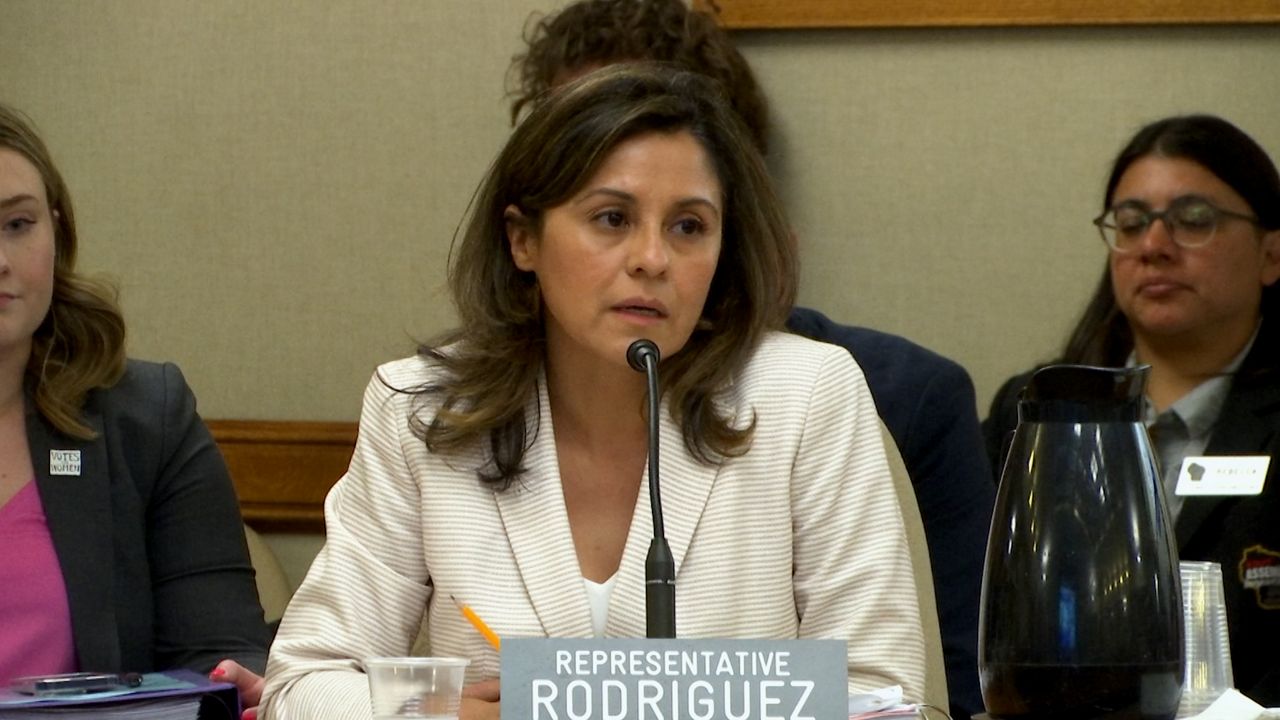MADISON, Wis.— As members of the state Legislature’s budget-writing committee near the end of their work on a two-year spending plan for Wisconsin, votes were taken Tuesday on parts of the education and shared revenue bills the governor and top Republican leaders agreed to last week.
After hashing the deal out behind closed doors, Democrat Gov. Tony Evers, Republican Assembly Speaker Robin Vos and Senate Majority Leader Devin LeMahieu reached a compromise, which meant Tuesday’s votes by the Joint Finance Committee were largely just a procedural part of the process.
Democrats, who have advocated for public schools, expressed their frustration with the deal Gov. Evers made, which includes more than $1 billion in spending on K-12 schools, but also invests more aid in school vouchers for charter, choice and special needs scholarship participants, which some lawmakers argued should not have been tied to the same compromise to make sure Milwaukee doesn’t go bankrupt.
“We should never use our kids as a pawn, and as grown adults that [are] responsible, legislatively, for this state, we should be ashamed, no, [Republicans] should be ashamed of themselves,” State Sen. LaTonya Johnson, D-Milwaukee, said during Tuesday’s executive session.
Despite those objections, Johnson did join Republicans in a 11-3 vote to support the education funding, which included the boost in size of state-supported school choice vouchers.
“It helps the program continue to grow,” State Rep. Jessie Rodriguez, R-Oak Creek, explained prior to the vote. “It’s popular for a reason. Parents want another choice, and we’re allowing them to do that. It’s a commitment that we’ve had in this legislature for a long time.”

Meanwhile, along a pair of 10-4 votes, the committee also approved the negotiated shared revenue plan for local communities.
Though no Republicans spoke in favor of the local funding portion of the deal, Democrats took the opportunity to raise concerns, including State Sen. Kelda Roys, D-Madison, who said she cannot trust the majority party.
“The state has never lived up to its commitment to fund local governments in the way that we said we would when we took all their revenue away and then limited their power to actually govern themselves,” Roys said. “So, my hope was now that we had a massive, nearly $7 billion surplus, that we would remedy this.”
The budget committee was expected to resume its work later in the afternoon Tuesday, to take votes on spending plans for the Dept. of Transportation and Dept. of Public Instruction, which includes the $1 billion boost for schools and funds for mental health programs.


